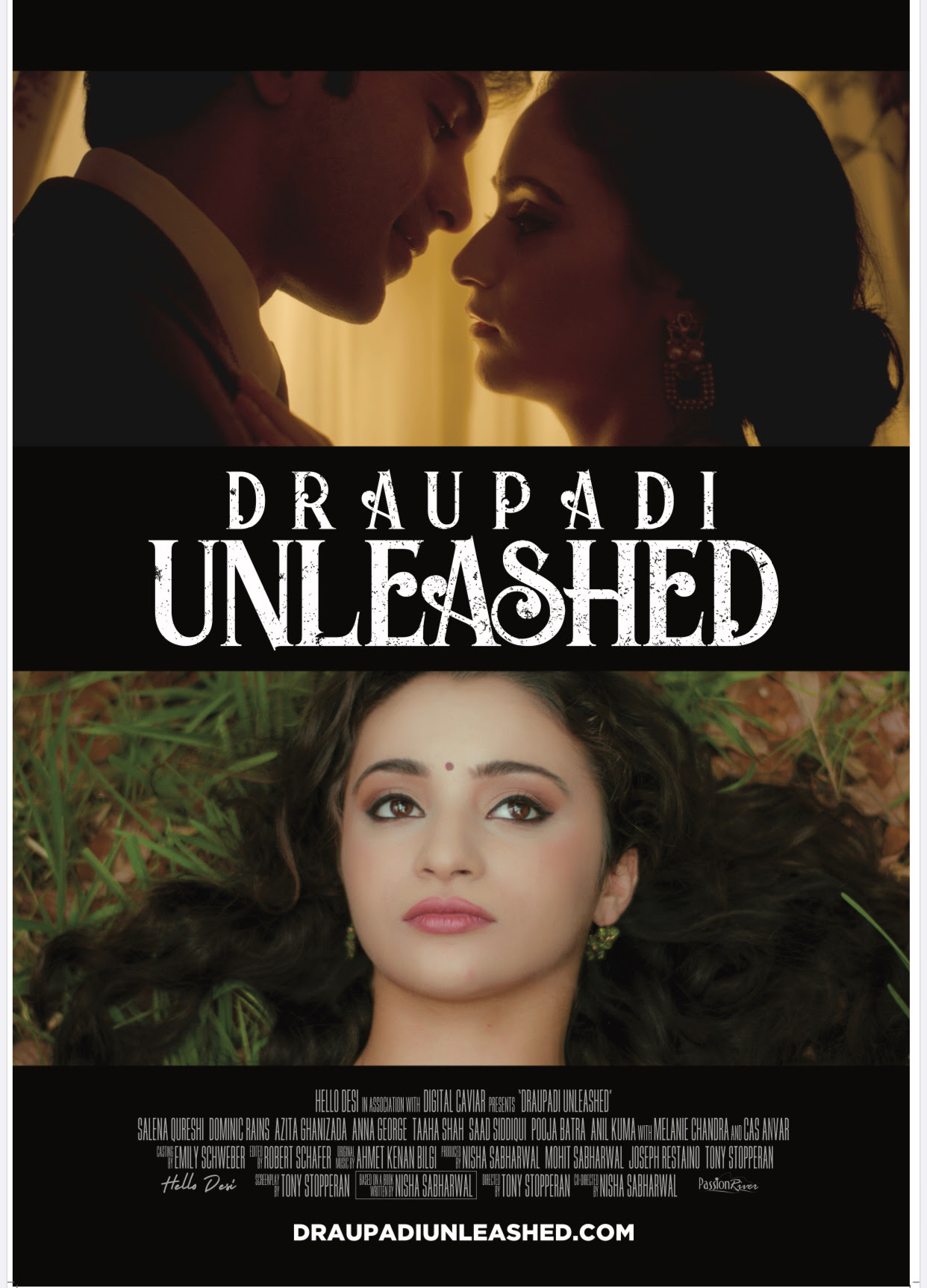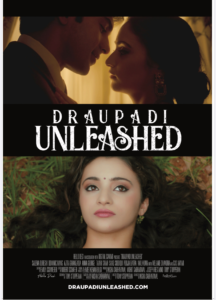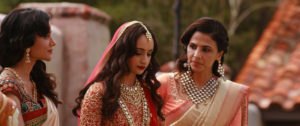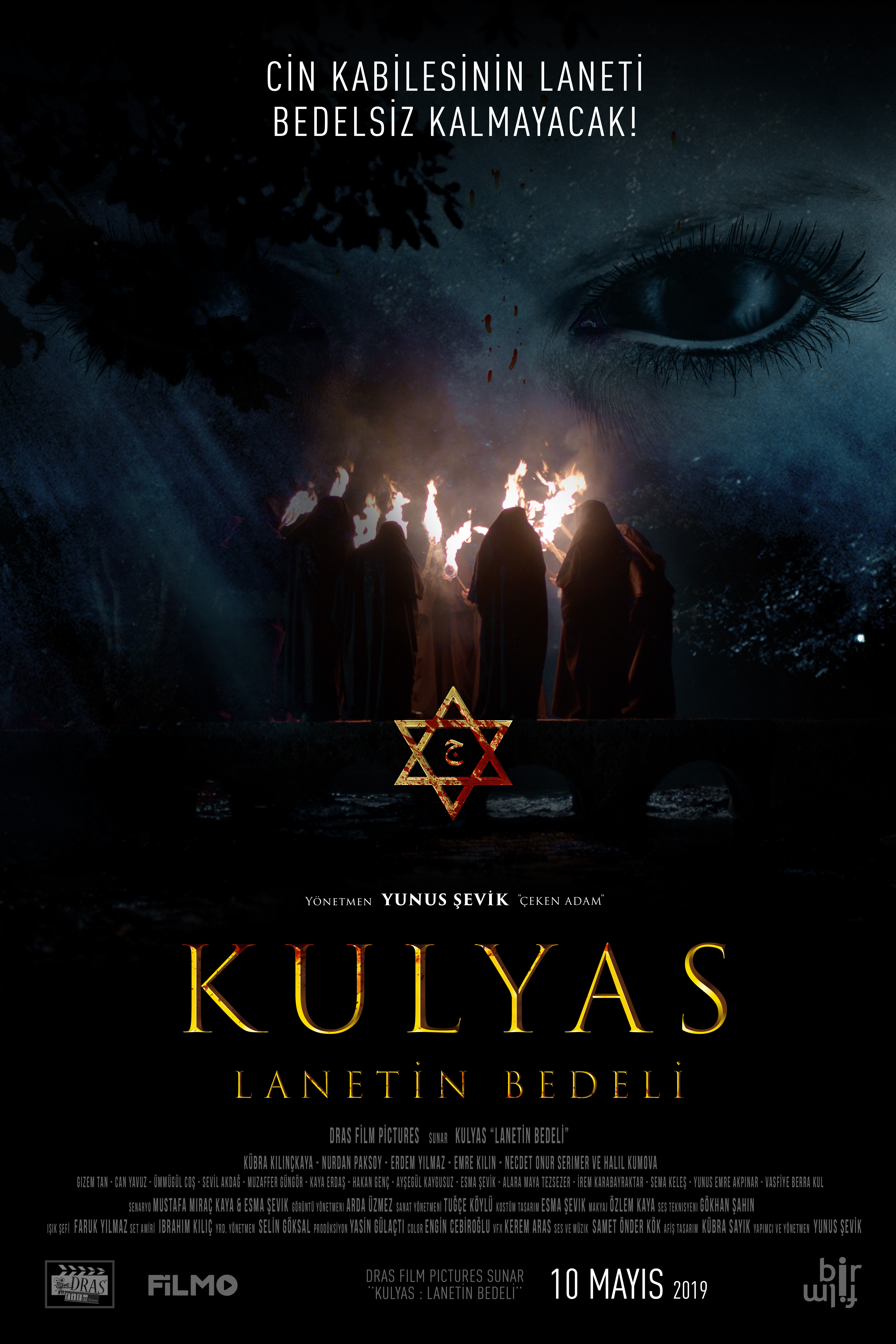
Indie Film Review “Draupadi Unleashed”
WATCH THE TRAILER HERE
First, the Recap:
The affections of the heart vs. the staunch rigidity of tradition. Perhaps a more common tale than we may expect, true abiding love knows no bounds, yet can find itself shackled by the realties of premeditated expectations, arrangements, and one’s future security. As if this might not already weigh upon someone’s spirit, how much harder is it when the pressure comes from family and a societal structure ruled by men? Raised by her mother Sita (Melanie Chandra) and beloved Amma (Anna George), 16-year old Indira (Salena Qureshi) finds herself caught in the passion of sincere endearment towards a humble man named Gautam (Taaha Shah Badusha) while having to face a fixed marriage to a wealthy businessman, Amar (Dominic Rains). Hoping to find true guidance from a powerful guru, Manu (Cas Anvar), Indira embarks on a stormy journey that quickly illustrates how unyielding convention can be and how deceptive motives of a male-dominated world will threaten to destroy everything she holds dear–including herself.
Next, my Mind:
Underneath a well-polished visual presentation and an admittedly soap opera-esque delivery and overall tone, there actually lies an engaging and impactful character drama at the heart of this 108-minute indie film effort from writer/director/producer Tony Stopperan, based on the novel of the same name from author/co-director/producer Nisha Sabharwal. Infusing many standard elements found in said TV serials as well as much of mainstream film (ie: deceit, lies, manipulation, love, lust, scandal, et al), the pacing for this critic was quite solid, flowing smoothly, easy to follow, and discovering a means to sweep the viewer into its world of one family’s generations of women, the oppressive atmosphere they’ve endured, the harsh obstacles they’ve tried to overcome, and one young girl’s emotionally harrowing experience to find love and her own sense of self amidst it all.
What grabs me most is just witnessing another depiction of the nature of Indian society’s history, in this case during the 1930’s while British rule still remained, when it comes to how women were more seen as disposable amusements rather than significant (much less relevant) relationships. Truthfully, it’s a painfully stirring, heartbreaking reality to take in, and even through to this contemporary age, it remains a facet of the culture that’s still being explored, lived, and now fought against with perhaps more fervor than in eras past. This narrative delivers it from the perspective of three generations of women in one family who’ve each come through the often demeaning experiences involved, whether from husbands or lovers, trying to not be invisible, yet staying “ghosts” in their households, neglected, and maltreated at minimum mentally if not physically.
While some of this sense of despair, or more specifically the actions that caused it, is more construed via conjecture, there’s no getting past the potency of how its all affected each of them focused on in this story, especially when it comes to a 16-year old girl’s adamant insistency to not just be noticed, but to defy tradition and innocently attempt to follow her heart. How this all culminates for her though leads us as the viewer to a decidedly unanticipated finale that is both striking, shocking, and hauntingly inspirational in its message of freedom sought in soul, mind, body, and spirit. That’s another point of this film that is shown via an almost supernatural chord that’s woven only sporadically into the events depicted, and it does add that air of mystical wonder that also leaves one undeniably fascinated to ascertain what precisely has occurred by the end.
Qureshi is a vision of wholesome, trusting, yet naïve irreproachability in her role as Indira, a beautiful young girl thrust into the world of an arranged marriage to a man she cannot see how to love while being wholeheartedly enamored with another whom she desires to be with. Yet, as she begins to traverse this realm of what her future is vs. what she wishes it to be, it could end up showing her more about the duplicity of even what appears to be the best intentions, and Qureshi embodied how this all impacts the character’s path wonderfully and with a quietly fiery intensity. Rains chews up scenery in his portrayal of Amar, a high-class and successful business man whose arranged marriage to Indira may or may not be anything he actually wishes to have, but plays along as is needed, while also demonstrating the haughty and overly confident yet ultimately damaged demeanor of a man who isn’t ready to be faced with his own shortcomings thanks to societal norms he thrives in. It’s perfectly enacted throughout by Rains with ardor and poise.
Anvar shines as the family’s go-to spiritual advisor Manu, a revered guru whose real intentions may not be as innocent and chaste as one might expect, which Anvar very much brings out in an understated performance that speaks volumes as the film unfolds. Badusha gives heart and charm to Gautam, a man who genuinely desires to provide real connection with Indira, yet finds himself at odds with her notions of love and freedom. Chandra radiates beauty, authority, and deep motherly instinct as Sita, a parent unexpectedly facing raising a child on her own and who desires nothing but the best for her daughter. George brings a strongly patriarchal presence to her role as Amma, Indira’s much treasured grandmother whom ends up playing more than a pivotal part in her granddaughter’s life lessons encountered here.
Additional roles appear from Azita Ghanizada as Indira’s Aunt Masumi who’s motives are very much in question and highly manipulative as well, Pooja Batra and Anil Kumar as Amar’s parents Mohini and Ganesh, each painting a sobering picture of a marriage filled with tension and lacking in actual love, Saad Siddiqui as Indira’s father’s eldest brother Dev, who has more than a few reservations about the fmaily and its secrets. Supporting appearances are also made by Abi Bais, Gopal Divan, Kai Gowda, Meghana Mudiyam, Paras Patel, Indigo Sabharwal, and TeriEnna Blanco. In total, while certainly not being “the greatest film” I’ve seen, this critic still feels it would be a definitive mistake to not give it a look in order to see the tapestry put forth beneath it’s “Days of Our Lives” outer shell that showcases on ongoing plight of women in Indian society and the need for changes to manifest that would see a newfound equality attained and a new history birthed for not just a nation, but for humanity and the connection we all should share.
As always, this is all for your consideration and comment. Until next time, thank you for reading!





